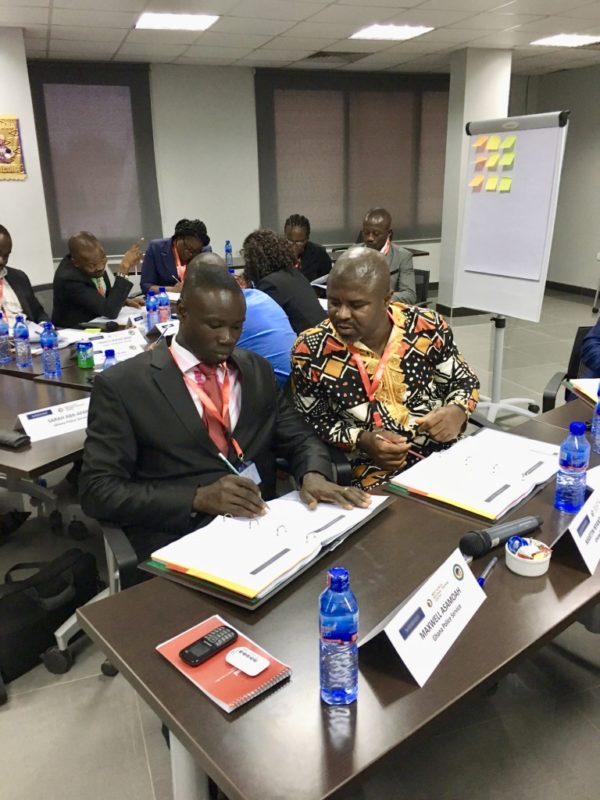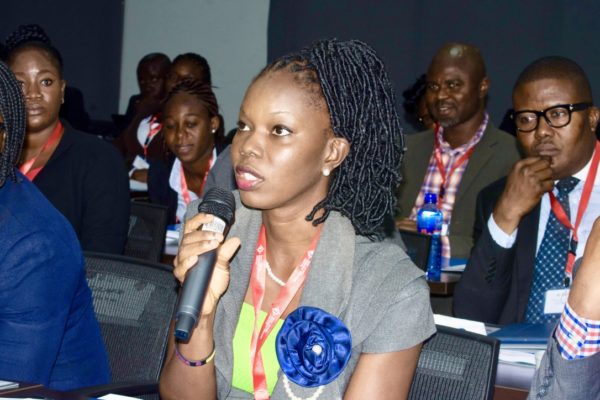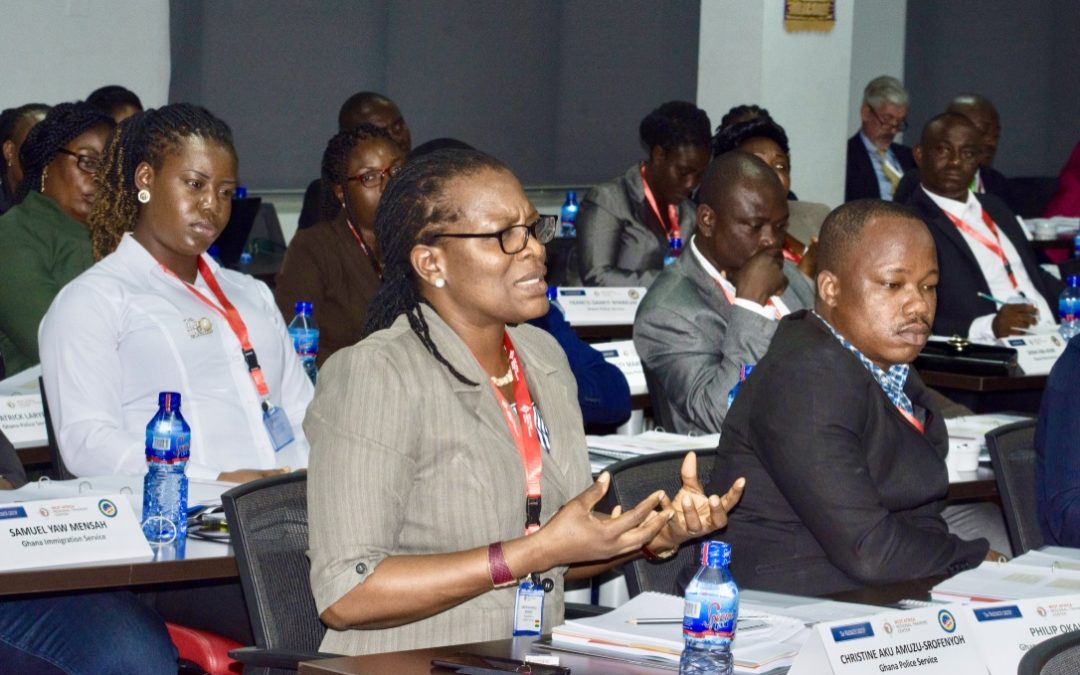The Workshop on Human Trafficking for Criminal Justice Actors, delivered by Warnath Group staff and experts, provided a unique opportunity for Ghanaian Police and Immigration officers to develop their investigative and interrogative skills for work on human trafficking cases in collaboration with local government and NGO officials.
The Department of State’s Bureau of International Narcotics and Law Enforcement Affairs (INL) hosted the five-day training at their West Africa Regional Training Center January 23-27, 2017. The Ghanaian participants included thirty-nine men and women officers from the Ghana Police Force and the Ghana Immigration Service. The workshop was officially opened by Rustum Nyquist, Political Officer at the U.S. Embassy in Accra.
Warnath Group experts, Glyn Morgan and Steve Harvey, and Warnath Group Senior Advisor on Law & Policy, Sheila Berman, led the training. A host of local experts attended and presented modules including:
- Raymond Atuguba, a member of the faculty of law at University of Ghana, Legon – Accra presented a module on the Ghanaian domestic trafficking laws.
- Joha Braimah, Ghana Country Director of international NGO Free the Slaves, and George Achibra, founder of Partners in Community Development Programme (PACODEP), a local NGO with a focus on protecting local vulnerable populations, including children, from trafficking presented on victim services available in Ghana. Achibra was the recipient of the U.S. Embassy in Ghana’s Martin Luther King Jr. Award for Peace and Social Justice (2011) and the U.S. Department of Labor’s Iqbal Masih Award for the Elimination of Child Labor (2012).
- Superintendent Mark Asamoah-Boakye, Head of the Migration Information Bureau at the Ghana Immigration Service, presented a module on the current TIP profile in Ghana, sharing information about specific trends in trafficking in Ghana including some of the more common victim profiles and trafficker profiles impacting Ghana.
- Victoria Natsu, the Executive Secretary of the Human Trafficking Management Board, which is part of the Ministry of Gender, spoke about the efforts of the Human Trafficking Management Board and encouraged the group to learn from the training so that they can identify more traffickers and help more victims.

The Warnath Group’s teaching techniques and approaches included case studies requiring participants to apply legal and strategic principles to fact scenarios; interactive expression and participation through classroom response-ware technology known as “clickers”; initial contact and evidentiary interview role-play exercises with local actors playing human trafficking victims; a participant role-play simulation illustrating how and when smuggled individuals can become trafficking victims; and a course-long trafficking scheme simulation where pieces of information about a complex trafficking ring were revealed slowly over several days in various group exercises to demonstrate how information can be collected, analyzed, and used to focus further investigation and ultimately pieced together to unmask a complex trafficking scheme and build a strong criminal case. These methods enhanced the interactive educational strength and relevance of the training and encouraged vigorous feedback and discussion, as well as supported real-time course tailoring by the trainers to the needs of the participants, while contributing to monitoring and evaluation assessments.
The experts also directed the participants to the recently promulgated Standard Operating Procedures (SOP’s) to Combat Human Trafficking in Ghana with an Emphasis on Child Trafficking Identification and Screening Protocols, which was included in the course materials as an excellent tool that they may use and refer to when conducting evidentiary interviews.
U.S. Embassy Deputy Chief of Mission Melinda Tabler-Stone and Chief Director of the Ghana Ministry of the Interior, Adelaide Anno-Kumi closed the training with formal remarks. The participants also received certificates of completion. Building upon this success and established relationships, the Warnath Group will continue its unique post-training follow-up communications to further support the participants and continue monitoring and evaluation efforts.

This successful training resulted in the attendees acquiring and strengthening specific skills and strategies to perform their anti-work more effectively, while developing a deeper knowledge and understanding about the recently adopted SOPs for identification and screening, equipping them to identity and investigate human trafficking cases. Additionally, the training provided the police and immigration officers who attended with a unique opportunity to exchange ideas and concerns with government officials from various departments and NGOs in order to improve operations and to facilitate future coordination and referrals.
At the conclusion of the workshops participants provided feedback describing how the training would improve their professional efforts to identify, investigate and prosecute traffickers while, at the same time, working with victims more appropriately. One participant shared that “in fact, everything about this training was very helpful to me because I have learned a lot of new things” and another stated that “all topics were extremely useful because they complimented each other and one has to know all to be able to efficiently investigate any human trafficking case.”
These workshops were made possible by the U.S. Department of State’s Office to Monitor and Combat Trafficking in Persons (J/TIP), and with the support and assistance of the U.S. Embassy to Ghana, Accra and the U.S. Department of State’s Bureau of International Narcotics and Law Enforcement Affairs (INL)’s West Africa Training Center.

